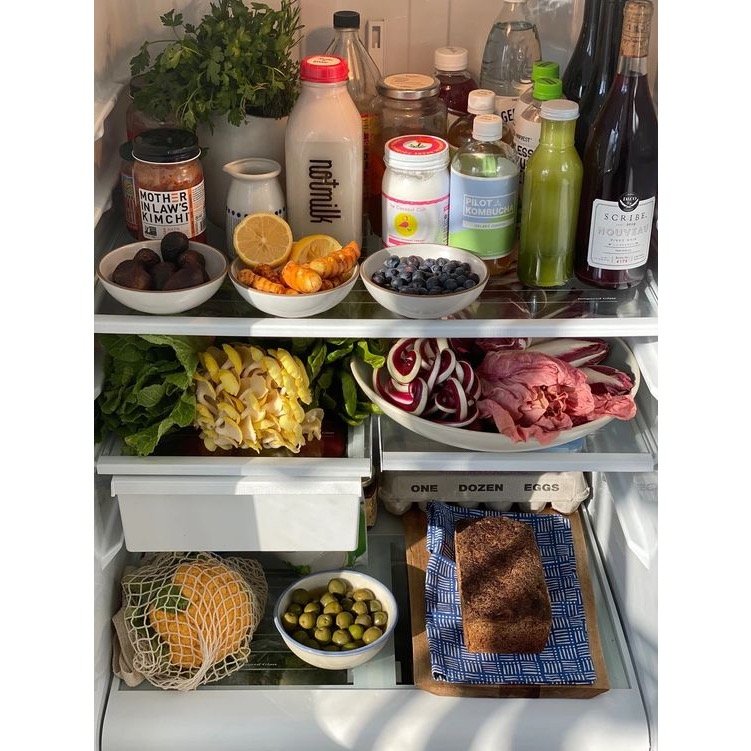Key To Nutrition
image credit - Pinterest
"If we could give every individual the right amount of nourishment and exercise, not too little and not too much, we would have the safest way to health.”
So how much is the ‘right’ amount?
In an age where we are still being brainwashed by fad diets and the newest era of health and wellness trends, the one thing clients struggle with most is knowing what to eat, when to eat it and how much they can eat. Unfortunately, there isn’t a right answer. I don’t have a magic recipe or cheat sheet I can provide because there is no ‘one size fits all’ solution as every individual is different and we all have specific needs and goals.
However, I can offer tips and advice based on tried and tested techniques that will move you closer to your nutritional goals without making drastic changes. As with most things in life, consistency is key, and to start off, we want to make things as simple as possible.
1. Start small
Small changes can make a big difference. Rome wasn’t built in a day and if you have poor nutrition habits now then you aren’t going to have immaculate eating habits by tomorrow or even by the end of the week. So take the pressure off and focus on one thing at a time. Here are a few tweaks that you could make to your current eating habits:
Eat breakfast
Incorporate fruits and vegetables
Stay hydrated
Increase protein intake
2. Eating consistently
Research suggests that a person’s ability to efficiently regulate their appetite is linked to a biological pattern called circadian rhythms. Circadian rhythms follow a 24-hour cycle that regulates the timing of physiology, metabolism and behaviour. To get back into that natural rhythm you may need to schedule meal and snack times for the same time every day until your body intuitively tells you when it’s time to eat.
Some days you’ll feel hungrier than others, you will naturally feel you need to eat more often and in bigger portions and other days you might find that you aren’t as hungry and that’s okay too. Portion sizes can always be adjusted accordingly but try to avoid skipping meals.
3. Prioritise food satisfaction
The simple definition of food satisfaction is having personal body knowledge and food freedom to eat food that is physically and psychologically appealing. In translation, listen to your body's hunger and fullness cues and eat the foods you want, not the ones society tells you to eat or not to eat. If you start randomly craving a cinnamon swirl for breakfast that is what you should eat and the craving will subside instead of pursuing you if you choose to ignore it.
4. Meal planning
Meal prep and planning take the guesswork out of breakfast, lunch and dinner making nutrition goals mixed with a hectic schedule easier to manage. Having something prepared and ready to eat makes it less likely that you’ll eat something that doesn’t satisfy your hunger. You can download my free meal planning resource here.
Think realistically about what meals you can fit around your job, social engagements and sleep/wake schedule. You will also need to schedule time for meal prepping. Either at the beginning or the end of a week are optimal times to avoid any midweek slumps or everyday distractions.
Allow for a little bit of flexibility so that you can honour food satisfaction.
5. Focus on balance
Eating a balanced diet is an important element of maintaining good health, and can help you feel your best. This means eating a wide variety of foods in the recommended proportions to get an adequate amount of nutrients. Without balanced nutrition, your body is more prone to disease, infection, fatigue, and low performance. A balanced diet includes the following nutrients:
vitamins, minerals, and antioxidants
carbohydrates, including starches and fibre
protein
healthy fats
Balance is the key concept here as whilst some foods are required in limited amounts it is vital not to restrict or cut foods out in their entirety unless it is for a medical reason such as an allergy or intolerance. A diet that consists of only fruits and vegetables could be considered as ‘unhealthy’ as a diet that consists of only processed foods or any other individual food group.
What’s your go-to tip for getting back on track with your nutrition goals? Share it in the comments below!

